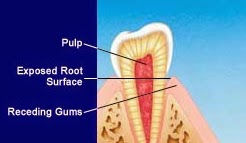Teeth whitening: How white can a smile be?

There's no one standard system in the dental field to measure and determine tooth color. Nor is there an exact answer to how white your teeth can become-every person's situation is unique. One commonly used reference tool, however, is a shade guide. One of the more common shade guides divides tooth color into four basic shade ranges: Tooth Shades A (reddish brown) B (reddish yellow) C (gray) D (reddish gray) A.Red - Brown Within each range are different levels of darkness — which results in a chart detailed enough for almost everyone to find their exact tooth color on the guide. To use such a guide, simply match your current tooth color to the corresponding color on the chart. This gives you a starting point as you determine how much whiter you'd like your teeth to be. How white should your teeth become? That depends. There's no one right way to whiten your teeth. Some people want an instant and dramatic change, while others prefer more gradual whitening...





